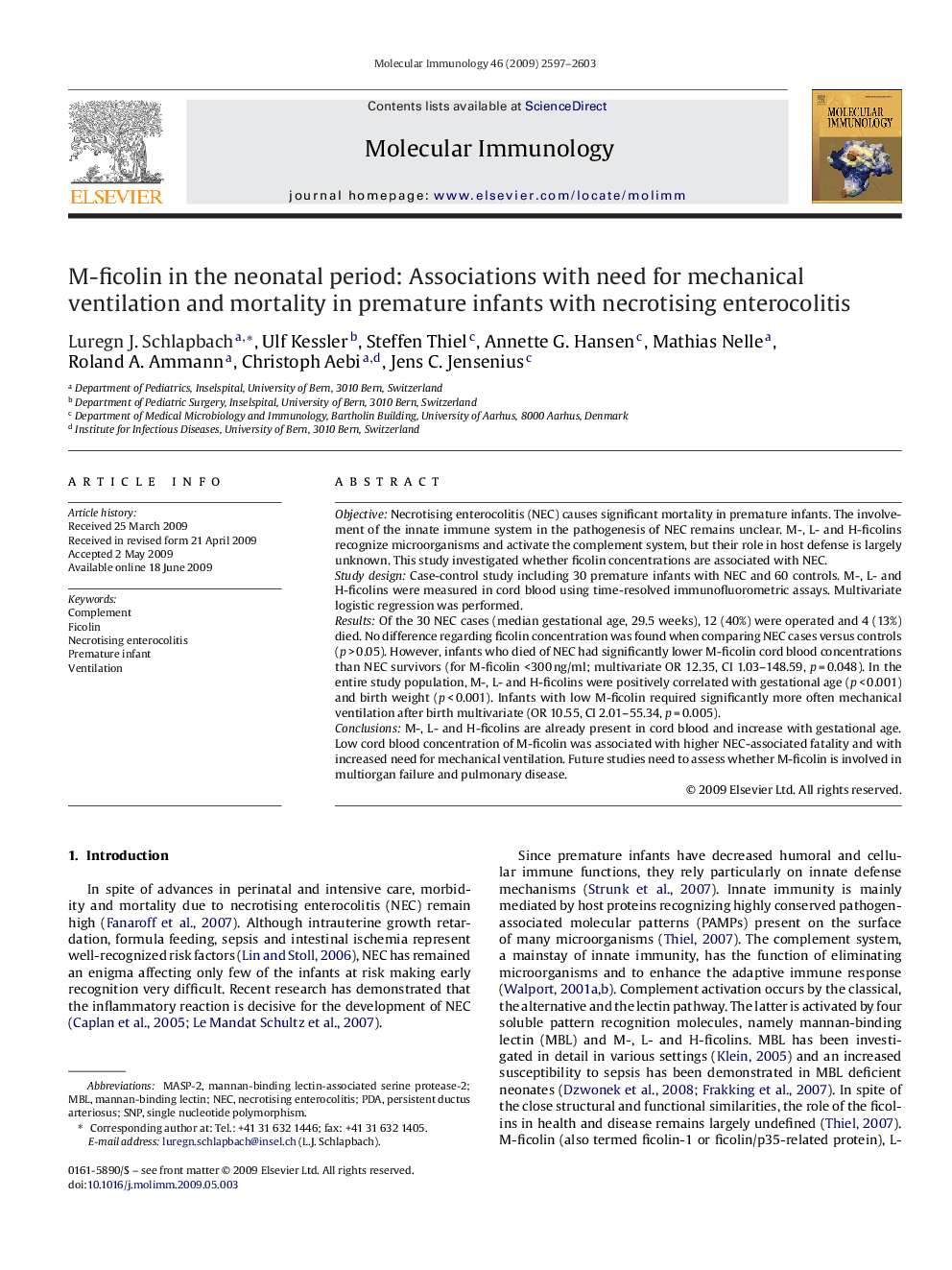| Article ID | Journal | Published Year | Pages | File Type |
|---|---|---|---|---|
| 2831400 | Molecular Immunology | 2009 | 7 Pages |
ObjectiveNecrotising enterocolitis (NEC) causes significant mortality in premature infants. The involvement of the innate immune system in the pathogenesis of NEC remains unclear. M-, L- and H-ficolins recognize microorganisms and activate the complement system, but their role in host defense is largely unknown. This study investigated whether ficolin concentrations are associated with NEC.Study designCase-control study including 30 premature infants with NEC and 60 controls. M-, L- and H-ficolins were measured in cord blood using time-resolved immunofluorometric assays. Multivariate logistic regression was performed.ResultsOf the 30 NEC cases (median gestational age, 29.5 weeks), 12 (40%) were operated and 4 (13%) died. No difference regarding ficolin concentration was found when comparing NEC cases versus controls (p > 0.05). However, infants who died of NEC had significantly lower M-ficolin cord blood concentrations than NEC survivors (for M-ficolin <300 ng/ml; multivariate OR 12.35, CI 1.03–148.59, p = 0.048). In the entire study population, M-, L- and H-ficolins were positively correlated with gestational age (p < 0.001) and birth weight (p < 0.001). Infants with low M-ficolin required significantly more often mechanical ventilation after birth multivariate (OR 10.55, CI 2.01–55.34, p = 0.005).ConclusionsM-, L- and H-ficolins are already present in cord blood and increase with gestational age. Low cord blood concentration of M-ficolin was associated with higher NEC-associated fatality and with increased need for mechanical ventilation. Future studies need to assess whether M-ficolin is involved in multiorgan failure and pulmonary disease.
